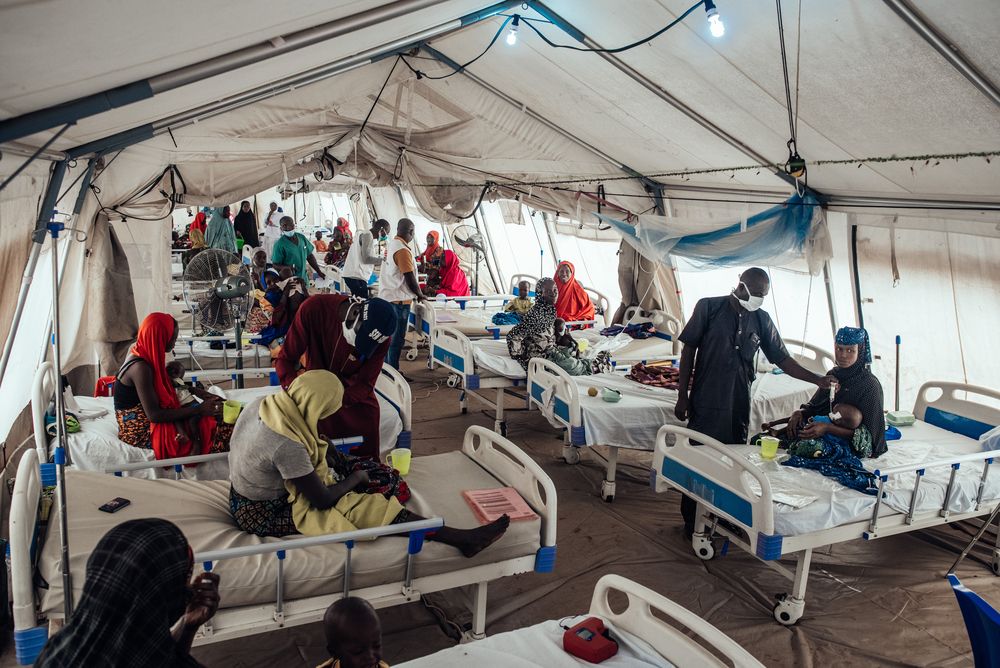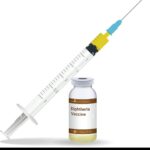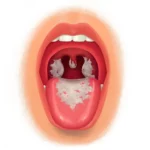Diphtheria Outbreak Escalates in Nigeria: Over 6,000 Cases Reported, Urgent International Aid Needed, MSF Warns

An alarming diphtheria outbreak is relentlessly sweeping through Nigeria, leaving thousands infected and hundreds of lives lost, according to Médecins Sans Frontières (MSF), commonly known as Doctors Without Borders. The international medical humanitarian organization issued a press statement via The NAN, underscoring the dire situation.
As of now, more than 280 patients are receiving treatment at Kano state’s two diphtheria treatment centers. The combination of low national vaccination coverage and a global shortage of vital antitoxin has created a perfect storm that threatens to exacerbate the outbreak. MSF is urgently calling on the international community to step up support, emphasizing the critical need for enhanced treatment, preventive measures, and contact tracing to curb the spread of the disease.
Dr. Hashim Omar, an emergency project medical doctor with MSF, stated, “We’re currently seeing more than 700 people with suspected diphtheria and admitting more than 280 patients on a weekly basis in Kano state’s two diphtheria treatment centers. Women and children under the age of five are the most vulnerable groups and are the hardest hit in Kano State. They are in dire need of assistance.”
Diphtheria, a severe bacterial infection affecting the nose, throat, and occasionally the skin, poses a grave threat. Without proper treatment, it can prove fatal in half of infected individuals, and even with treatment, the disease remains lethal in five percent of cases. The Nigeria Centre for Disease Control and Prevention declared an outbreak on January 20, 2023.
MSF reported that between May 2022 and early September 2023, over 6,000 confirmed cases of diphtheria have been recorded in Nigeria. Furthermore, in August 2023 alone, the country witnessed around 4,000 suspected cases, with more than three-quarters originating from Kano state.
In response to the crisis, MSF teams are actively engaged in addressing the outbreak in Kano, Borno, and Bauchi states. However, this endeavor has been hampered by the global shortage of lifesaving diphtheria antitoxin used in treatment, a situation exacerbated by dwindling production capacity.
Dr. Omar lamented, “While we provided 2,000 doses of diphtheria antitoxin last month in Kano, securing doses of the antitoxin has been one of the biggest challenges in this crisis. We have placed an urgent additional order of 5,000 doses to cover the needs of our projects, but still, it is not enough.”
Given these pressing challenges, concerted efforts to reduce disease transmission and fortify outbreak preparedness and response in Nigeria are of paramount importance. Key measures include vaccination, as the outbreak underscores a low vaccination rate, with only 70 percent of children having received their first dose of the diphtheria-tetanus-pertussis vaccine. The decline in immunization has left an alarming 25 million unvaccinated or under-vaccinated children in Nigeria in 2021. However, the funding required for vaccines and implementation remains a significant hurdle, with Kano State alone needing millions of doses to target high-risk groups.
In addition to immediate antitoxin and vaccination needs, MSF urges international organizations to intensify efforts in enhancing surveillance, contact tracing, and measures to strengthen the local healthcare system.
MSF’s response to the outbreak spans multiple regions, including Maiduguri in Borno state, where a 20-bed diphtheria treatment clinic has been added to the pediatric hospital in Gwange III PHC. Additionally, MSF teams in Kano state have been tirelessly treating patients since January, operating treatment centers with a combined bed capacity of 147. In Bauchi state, where 21 diphtheria cases have already been treated during routine medical activities in Ganjuwa, MSF is closely monitoring the situation and stands ready to initiate diphtheria-specific interventions as required.
Beyond Nigeria’s borders, MSF is also aiding neighboring countries. In mid-August, the organization began supporting the Ministry of Health in Guinea, operating in an epidemic diseases treatment center in Siguiri prefecture, where over 100 individuals have been admitted since the initiation of activities. Collaboration with the Nigerien Ministry of Health has seen MSF teams conducting the first round of a preventive vaccination campaign in Kantché and Amsoudou health areas in early September, reaching nearly 48,500 people. A second round of vaccinations is slated for early October. The growing number of suspected cases in the region underscores the urgency of enhancing access to antitoxin drugs and vaccination initiatives.
In the face of this escalating crisis, MSF’s call for international support resonates as a critical imperative to alleviate the suffering caused by this devastating diphtheria outbreak in Nigeria and its neighboring regions.



